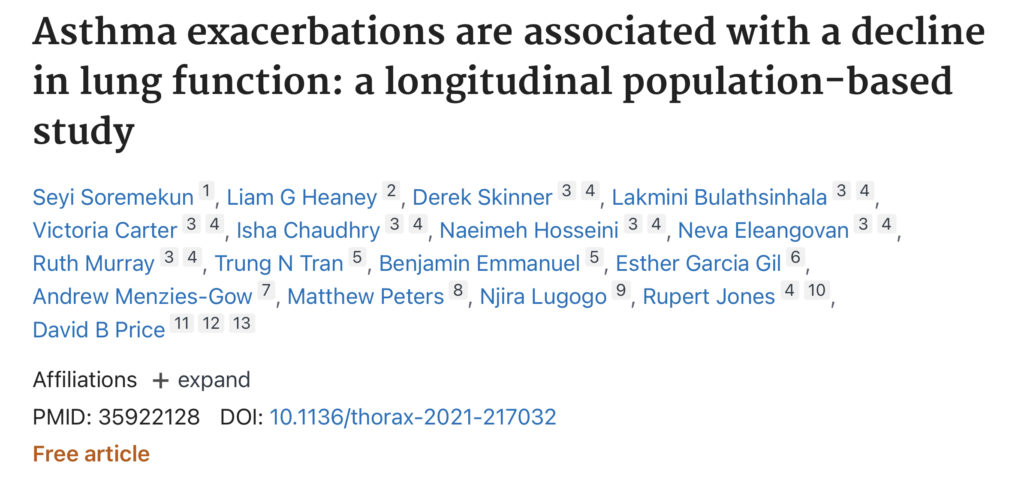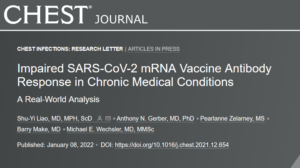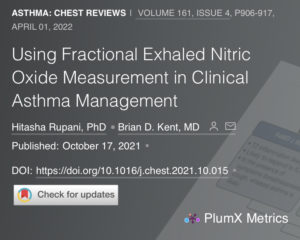
Despite many advances in therapeutic options for asthma, many people who suffer from this disease put up with chronic symptoms and suffer acute exacerbations (AE), requiring treatment with oral steroids and visits to emergency rooms and hospitals.
At our journal club we discussed a recently published populational study which assessed the role of exacerbations in declining lung function in adult asthma patients. They used the largest enhanced healthcare database in the UK, which has de-identified data from over 800 general practices serving approximately 12 million patients. The study included 109182 patients with asthma, who had records of follow up for at least 5 years and repeated lung function tests. The median follow up length was 10.4 years.
The researchers evaluated the lung function trajectory in patients enrolled in the study. They evaluated the change in the lung function according to the patient’s age (18-24, 25-39, >40) and annual rate of exacerbations (0/year, >0-1/year, >1-2/year, >2/year).
There was a significant acceleration in lung function decline with every additional exacerbation per year. When the patients were stratified by age at the time of enrollment in the study, the largest effect of AEs on lung function loss occurred in patients aged 18-24 and 25-39. The rate of lung function deterioration in these age groups experiencing 2+AEs/year was 3-6 times greater than in those who did not have any AE.
This large populational study demonstrated that asthma AEs are associated with significant decline in lung function, especially in the younger patients. The authors suggested that earlier intervention with appropriate management of asthma would be of value to prevent excessive decline in lung function.
For the full article, follow the link: https://pubmed.ncbi.nlm.nih.gov/35922128/




